Horses, dogs, cats and more: NHSPCA has them all and needs your help
STRATHAM — With more than 140 animals under its care, the New Hampshire Society for the Prevention of Cruelty to Animals is nearing its capacity.
The NHSPCA is the oldest and largest animal shelter in the state and is currently home to animals of all sizes — from mice and gerbils, to cats and dogs and all the way up to miniature horses and mustangs.
Sheila Ryan, the shelter’s director of development and marketing, said the animals come from various places around the country, most recently Florida, Texas and South Carolina.
The shelter is currently home to about 23 horses, 32 dogs and puppies, and 40 cats and kittens. In addition to those numbers are farm animals such as sheep and donkeys, and small animals such as rabbits and guinea pigs.
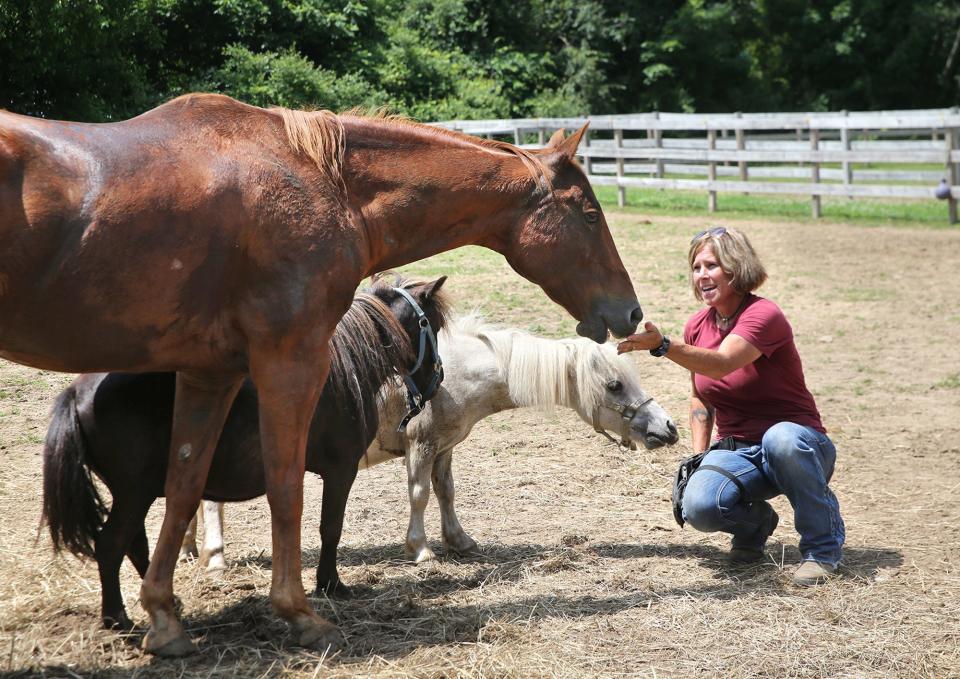
Though almost reaching capacity, Ryan said they will not stop providing care to animals in need.
“I would have told you that we were at capacity for horses completely, every paddock was full,” she said on Thursday. “But we took in six horses yesterday because they needed us.”
American Independence Festival 2023: Free admission, fireworks, battles and more
Neglected animals in need of a forever home
Just last month, the shelter took in nine horses and 14 dogs after an investigation led to the surrender of those animals. According to Ryan, the NHSPCA has a cruelty investigator who works closely with police departments and animal control for issues like this.
“The three top reasons for surrender tend to be — not necessarily in this order — financial concerns, housing and no time,” Ryan said.
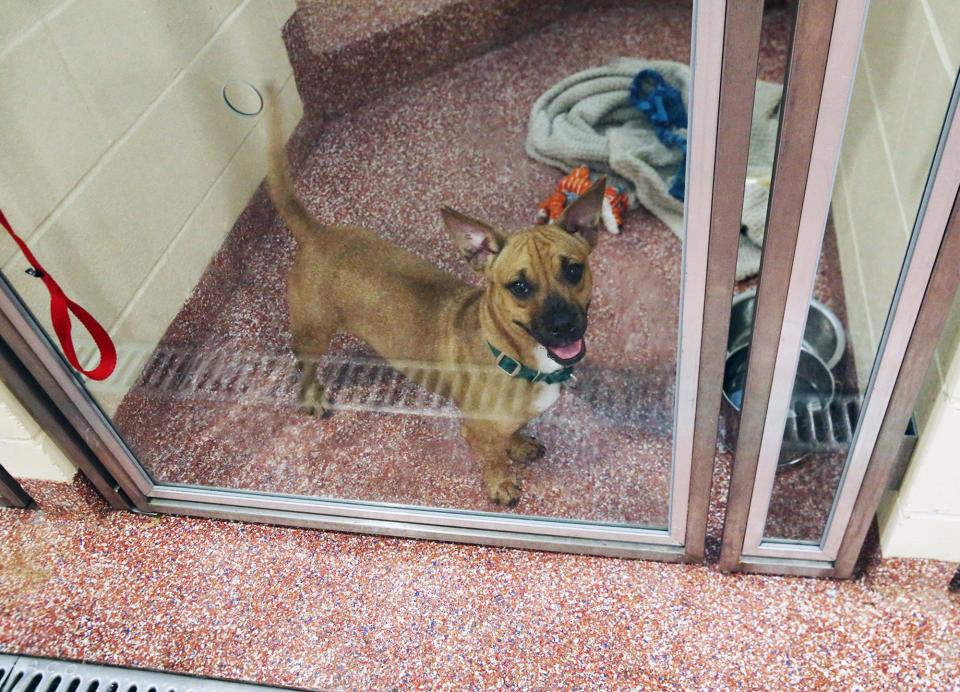
Other reasons for surrender include abandonment and abuse.
“Sometimes (abandonment) is an intentional thing,” she said. “But more often than not, its owners becoming really overwhelmed for whatever reason … we try to educate the owners and explain that this is not a safe situation for the animals. We can accept their surrender of the animals so that charges wouldn’t be brought to them.”
However, Ryan said, police take over when there are clear signs of animal abuse.
“Our concerns and our point of being there is the safety and welfare of those animals,” she said.
The saga of 19 Continental Drive: Why Exeter’s prime land remains undeveloped
The pandemic pet adoption boom is over
Ryan said the shelter saw a surge in adoption during the years of COVID-19 when people were spending more, if not all, of their time at home. But recently, while the number of adoptions diminished, the number of animals surrendered has spiked.
“We were all kind of waiting for the other shoe to drop when the pandemic ended and everyone returned their animals, but that didn’t really happen,” she said. “But in recent months, the number of surrenders has been going up.”
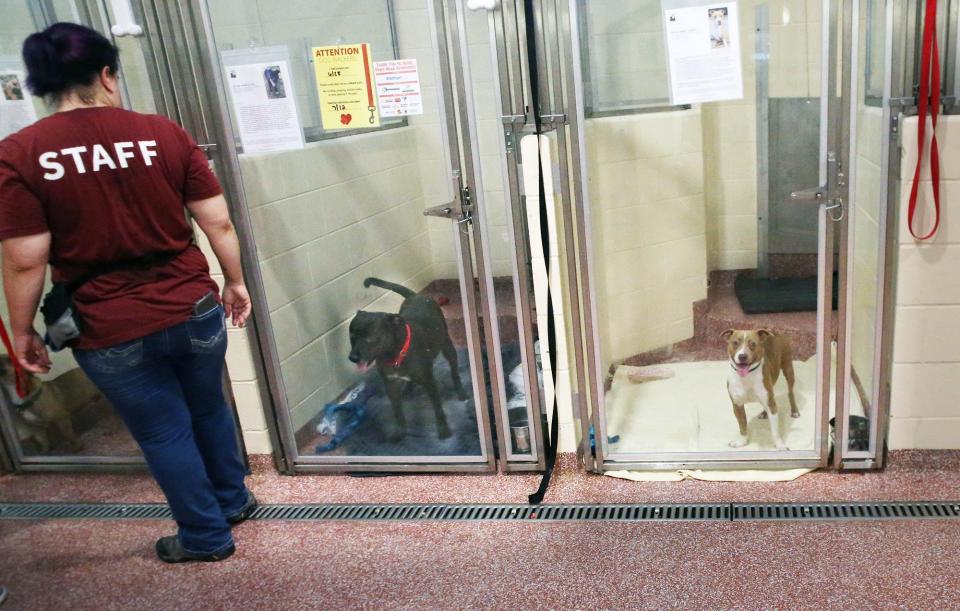
According to Ryan, the process from when an animal is brought to the shelter to when it's ready to be adopted varies, ranging from one week to several months. In addition, out-of-state animals are required to be quarantined for at least 48 hours. After the animals are assessed, they are neutered and given medical attention, if needed.
“For your average perfectly healthy animal (it’s ready) in seven days — that’s a round number,” Ryan said. “But we’ve had dogs that are heartworm positive, for instance, and those require months of treatments.”
Ryan said overpopulation has been a long-standing problem for many reasons, including animals not being spayed and neutered.
A record number of horses need a new home
Michelle Murch, NHSPCA's equine and farm program manager, said 23 is “an extreme number of horses, in addition to the goats and sheep in our care.”
Out of the 23 horses, only seven are ready to be adopted.
“We are blessed to have volunteers that help with the horses and farm animals, and we are so grateful,” said Murch. “But horses require expensive care. They need vet care, farrier work and more.”
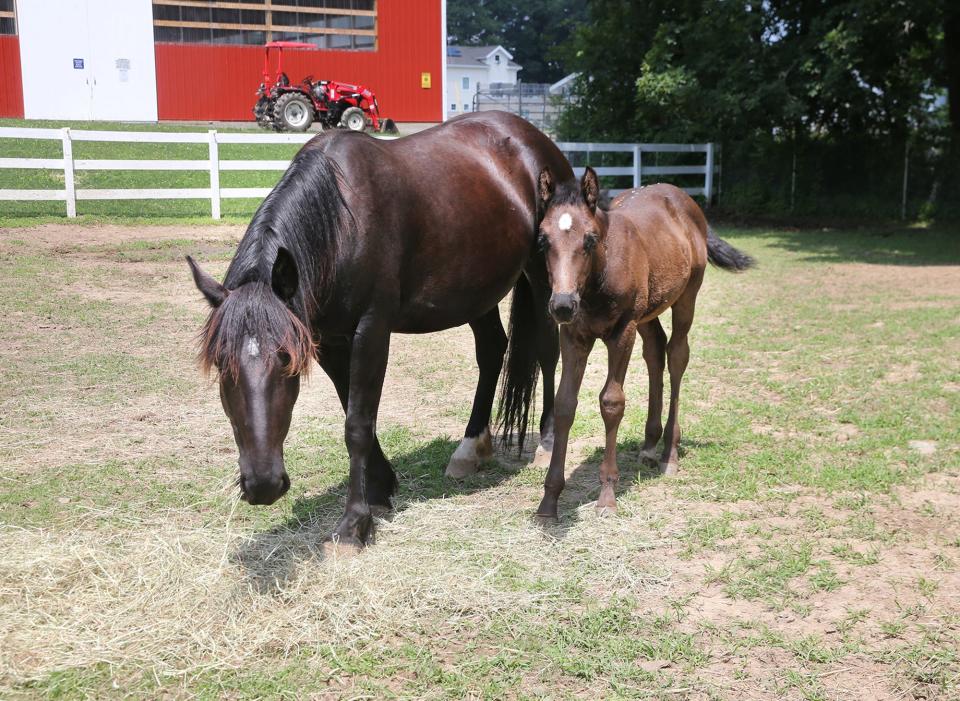
According to Ryan, the adoption process for all animals is the same, but the timeline varies.
“It’s more of a conversation,” said Ryan of the screening process. “It’s not like back in the day when there were home inspections — some organizations still do that — but for us, it’s really a conversation of what (adopters) are looking for in an animal. With a horse or farm animals … it’s definitely a longer process.”
The program manager, she said, would discuss with the potential adopter, taking everything such as living space, experience and financial situation into consideration.
“We don’t want a horse who is challenging to go to an animal handler who is unable to handle it,” she said. “You don’t want to adopt a high-energy six-month-old (German) shepherd if what you’re looking for is a couch potato…It’s about making sure that there’s a good match.”
How you can help
Ryan said the NHSPCA needs adopters and financial support at this critical juncture.
The New Hampshire SPCA is asking for the community’s assistance in caring for each of these animals through financial support or by sharing information to potential adopters.
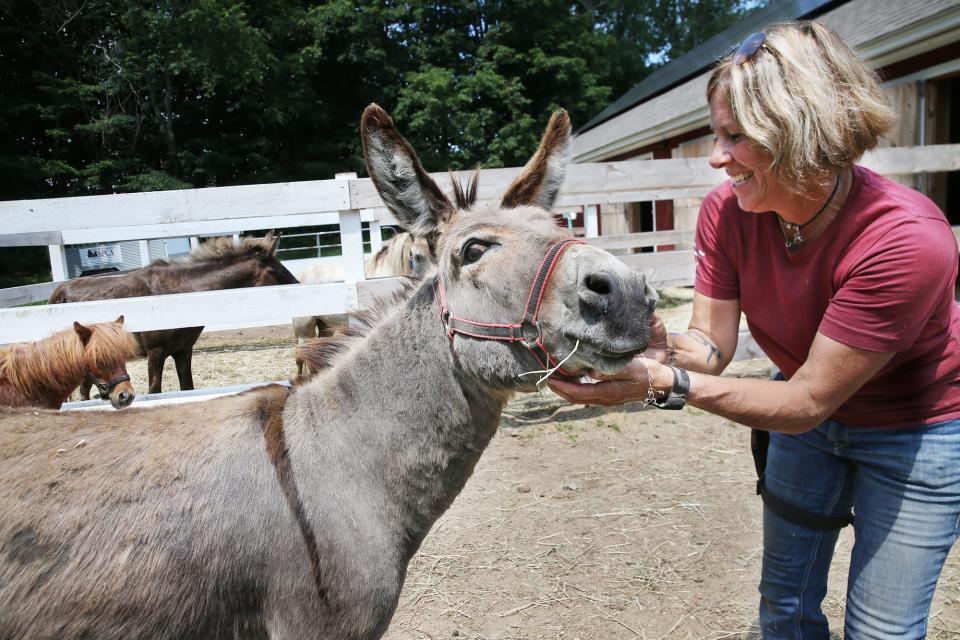
If interested in adopting, you can visit nhspca.org. The list of adoptable animals online does not reflect all animals currently under the shelter’s care. Interested parties should reach out to Michelle Murch at mmurch@nhspca.org to inquire about the timing for adoption readiness.
“There are several wonderful dogs that were just cleared for adoption yesterday and are waiting for their ideal match to come along,” Ryan said.
Tax-deductible donations to help with animal care can be made to the NHSCPCA's SOS FUND at nhspca.org. A direct link to the SOS Fund is classy.org/checkout/donation?eid=127496. Gifts to the SOS Fund can also be made by phone at 603-772-2921 ext. 102 or by mail: New Hampshire SPCA, PO Box 196, Stratham, NH 03885.
Those who would like to give items to assist with the animals' care can visit NHSPCA's Amazon wish list, which is also found at nhspca.org.
The NHSPCA is located at 104 Portsmouth Ave. in Stratham and is open Thursdays to Tuesdays from 11 a.m. to 4 p.m.
This article originally appeared on Portsmouth Herald: NHSPCA has horses, dogs, cats, sheep and more for adoption

